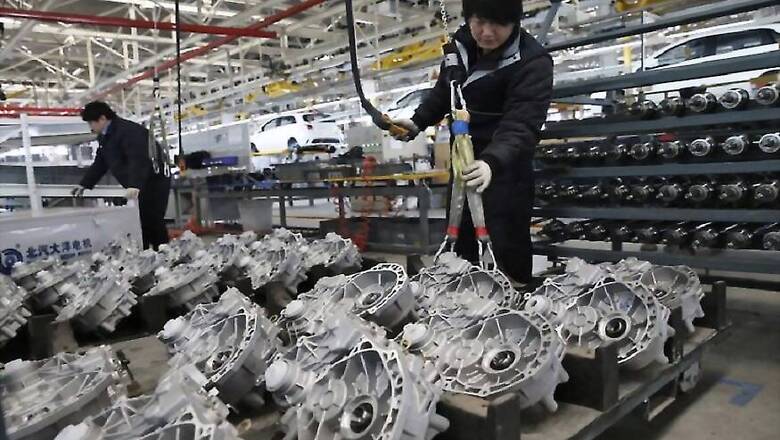
views
After paying out billions of dollars in subsidies to promote greener cars - and creating a gold-rush among unknown start-ups - China is tightening its grip on the world's biggest electric vehicle (EV) market to weed out weaker domestic firms.
But some leading local EV makers are, for now, ignoring calls to apply for costly manufacturing licences, preferring to invest in design and technology innovation.
That, analysts warn, could prove costly down the road if they fail to secure permits to make and sell their new cars.
China has rapidly built the world's largest EV market, throwing money - subsidies of $4.5 billion last year alone - at a sector it hopes will lower fuel imports, improve big city air quality and create technological champions.
Beyond the traditional automakers, Beijing opened the sector to investment by technology firms and others. EV start-ups such as LeEco, Future Mobility and WM Motors have raised hundreds of millions of dollars to develop green car technology.
In recent months, authorities have cracked down on firms making substandard products and gaming the subsidy schemes through phantom car sales. State support has been tightened and there are new rules for companies applying for a licence to make all-electric cars.
Since March, just a handful of companies, all auto industry veterans including those with ties to BAIC Motor and Chery, have been granted licences - around a quarter of the total applications, auto executives say.
Some of the leading tech and start-up companies, including those backed by Tencent and Foxconn, are holding off from applying, saying they are either still some way from actually making cars or expect the rules to change.
Wang Chao, chairman of EV start-up Kaiyun Motors, said that instead of pitching directly for a licence, he preferred to buy a struggling petrol car maker whose licence can also be used to make electric vehicles. That 'grandfathering' process allows firms to produce cars in existing factories, though they would need permission for any new plant.
"You can spend tens of millions and get a licence, but all you get is a licence. If you buy a company, you also get a factory," Wang said.
Start-ups are taking a gamble by not getting a licence now, says Yale Zhang, Shanghai-based managing director of consultancy Automotive Foresight.
An NDRC licence will be a likely prerequisite for selling an electric car, and the public security bureau, which issues car licence plates, is unlikely to give out plates for cars made by companies with no central approval.
Zhang at Automotive Foresight estimates companies need to have least 3 billion yuan ($438 million) to meet the new R&D, sales and plant standards.
While several start-ups have the funding, they are reluctant to fork out on licence applications now, though several said it was inevitable.
As China winnows down the number of firms racing to produce clean, smart, internet-connected cars, auto executives are calling an end to the recent boom.
Sales of new-energy vehicles (NEVs) in China - including all-electric and plug-in hybrid models - totalled 337,000 in January-October, up sharply from last year, but still some way short of China's target to have 5 million NEVs on its roads by 2020.




















Comments
0 comment